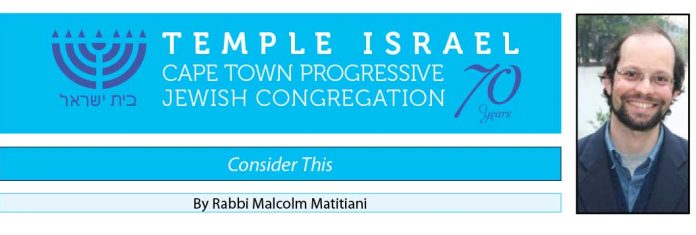Besides being a festival of light that marks the winter solstice in the northern hemisphere and a celebration of the victory of the Maccabees over the Seleucids, Chanukkah deals with the profound issue of identity, so fundamental to every individual.
According to the First and Second Books of Maccabees Chanukkah is a celebration of the re-dedication of the Temple after the triumph of the Jewish guerrilla army led by Yehudah ben Matityahu against the Seleucid forces sent by Antiochus IV Epiphanes to oppress the Jews of Judea. After ascending the throne of the Seleucid Empire in 175bce, Antiochus plundered the Bet Mikdash, massacred Jews and banned Judaism. In 167bce he dedicated the Temple to Zeus, inspiring the Jewish rebellion.
Scholars argue that Antiochus may have been interfering in a civil war between the Hellinised Jewish elite of Jerusalem and the more traditionalist Jews of the countryside who were embroiled in a violent contest over who would be anointed as High Priest. Traditionalists with Hebrew/Aramaic names like Onias were overthrown by Hellenisers with Greek names like Jason and Menelaus. The latter were willing to adapt Jewish worship to accommodate the beliefs and practices of the Seleucid rulers of Judea. As the conflict escalated Antiochus took the side of the Hellenisers which would explain his oppression of Judaism which was contrary to his policy elsewhere in his empire.
Thus the Maccabean revolt, the successful conclusion of which led to the celebration of Chanukkah, was the result of a dilemma faced by many nations and individuals — how to cope with a changing world and still retain one’s identity. The Jews in Judea had to deal with the emerging Greek culture brought by Alexander the Great and they did so in two ways. The wealthier urbanised classes adopted Greek names, dress and mannerisms while the poorer rural Jews sought refuge from Hellenism by stricter adherence to the traditions of their ancestors.
It is fitting that we read the story of Joseph as the parashah for the Shabbatot leading up to Chanukkah as well as the Shabbat of Chanukkah. When Pharaoh elevated Joseph to the position of Viceroy over Egypt he dressed him in the garb of an Egyptian noblemen, decreed that he be known by the name Zaphenath-paneah and gave him Osenath, the daughter of an Egyptian priest as a wife. Joseph became so outwardly assimilated that even his brothers did not recognise him until he revealed his true identity: Ani Yosef, Ha-od Avi Chai?, “I am Joseph, does my father still live?” (Genesis 45:3). Indeed Jacob did not recognize Joseph’s sons, Manasseh and Ephraim when Joseph brought them to their grandfather’s death bed for a blessing because they were dressed in the attire of Egypt.
Yet despite outward appearances Joseph was still very much a Hebrew, worshipping the God of his ancestors and conducting himself according to the life-affirming principles of his tradition, so much so that he is known in rabbinic literature as Yosef ha-Tzadik, “Joseph the Righteous”. Indeed, on his death bed, knowing that as an Egyptian nobleman he would receive an Egyptian funeral, he requested that his brothers make it known that he wished to be buried in the Land of Israel. In fulfilment of his request Moses himself carried Joseph’s bones out of Egypt and they were buried at Shechem after the Israelites’ conquest of Canaan. Joseph’s request that he be buried in the land promised by God to Abraham, Isaac and Jacob is indicative of his strong sense of identity and his loyalty to God.
While the Hellenized Jews of the Chanukkah story were unable to retain the integrity of Torah tradition, becoming corrupted by the foreign culture which they adopted and allowing the Temple to be desecrated, the example of Joseph demonstrates the ability to adopt positive aspects of the dominant culture while still remaining true to the values, ideals and traditions of Torah.
Jews have faced the challenges of an ever changing world for millennia and our ability to adapt and change has enabled us to survive as a people, a culture and a faith community. We have been able to absorb the positive features of the dominant culture in which we have found ourselves while retaining the life-affirming values, principles and rituals of Judaism. This has not only ensured our survival, but has also enriched the Jewish experience, providing different traditions between, and within, Ashkenazi, Sephardi, Mizrachi and Yemenite Jews.
The twenty-first century brings its own challenges to being Jewish and the same two choices face us as individuals and communities. Do we shy away from modernity and seek refuge exclusively in our past traditions and way of life, shunning all technology and outside sources of information or do we embrace the world, absorbing the positive contributions of our age while filtering out its negative aspects? This is the question we need to ask ourselves as we read the saga of Joseph and light our chanukkiyot.
I wish you a blessed and enlightening Chanukkah. Chag Chanukkah Sameach.











